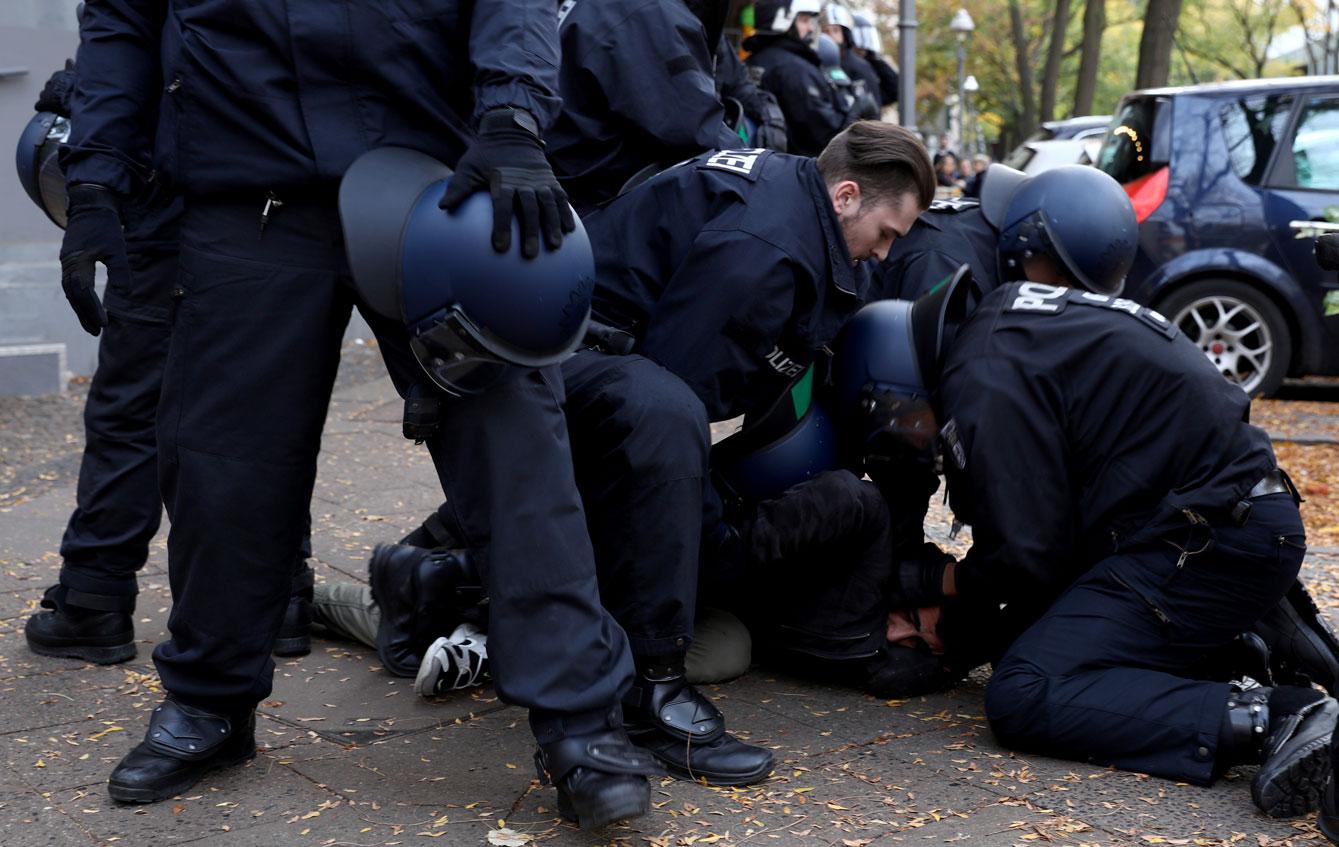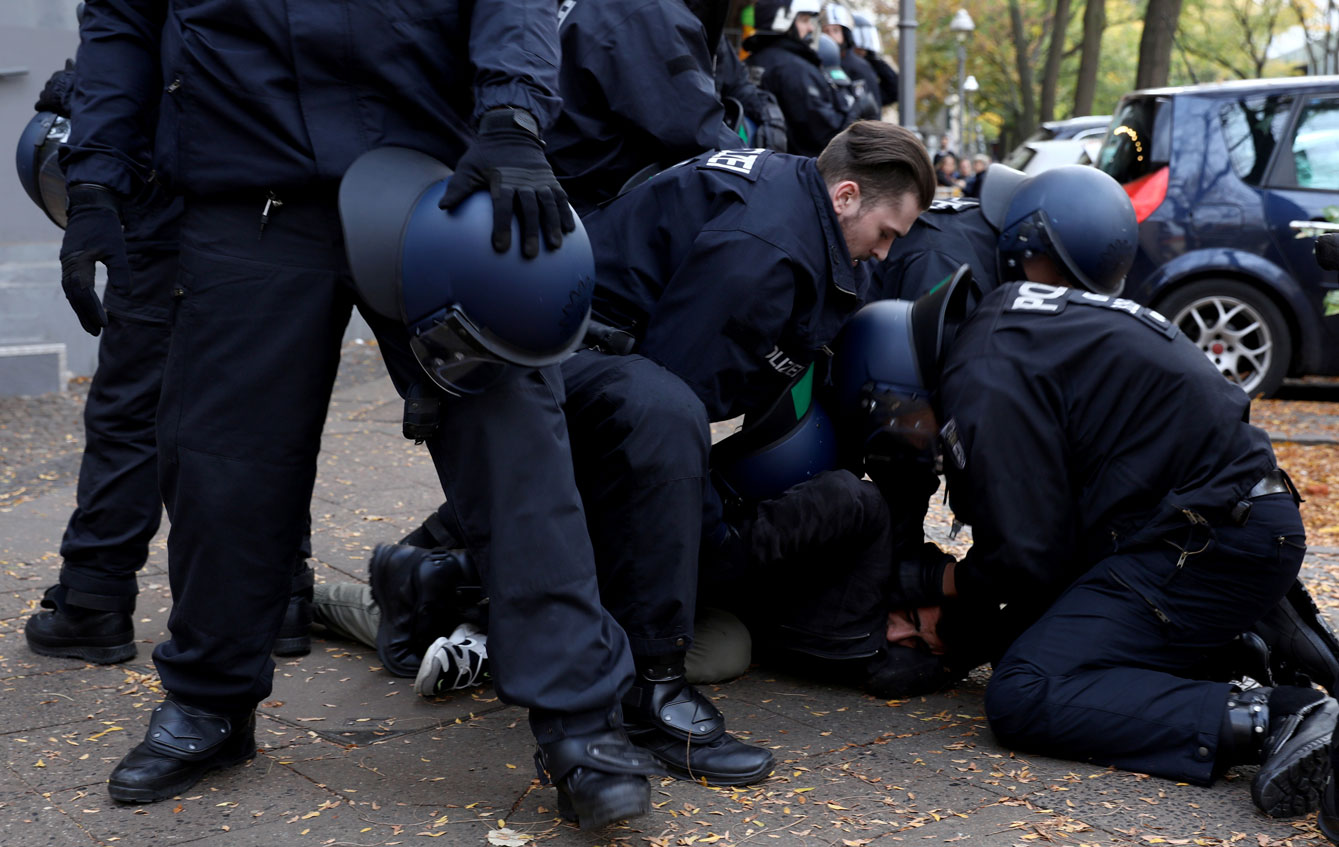Turkish-Kurdish tensions in Germany feed mounting concerns over Syria fighting
FRANKFURT AM MAIN - German car giant Volkswagen has delayed a decision over whether to build a new factory in Turkey over Ankara's offensive on northeastern Syria, a spokesman said Tuesday, the latest sign of mounting concerns in Germany over the assault targeting Kurdish forces that are seen as allies of the West.
While an announcement had been expected on a new factory worth up to 1.5 billion euros ($1.3 billion) and bringing 4,000 jobs, "the Volkswagen board has delayed the decision. We are carefully observing the present situation and view current developments with concern," the spokesman said.
Volkswagen had "in recent months" decided to build a new factory to serve Eastern Europe in Turkey, rather than other candidate countries Romania or Bulgaria, business daily Handelsblatt reported. But some European Parliament members accused Turkey of offering VW public contracts and subsidies in breach of EU law.
Germany and fellow EU member states have condemned Ankara's military intervention in Syria, with France and Germany saying Saturday they would stop weapons exports to Turkey.
Western powers believe that Kurdish-led forces in northern Syria were key to the battle against the Islamic State jihadist group. They warn that the fighting in the region could allow thousands of imprisoned jihadists to escape.
Ankara accuses Kurdish militias in the region of terrorism over alleged links to the Kurdistan Workers' Party (PKK) which has waged a separatist insurgency inside Turkey since 1984.
European officials have also warned that the West's perceived abandonment of their Kurdish allies could be seen as "rewarding" Russia, which intervened in Syria in 2015 to prop up the government of Syrian dictator Bashar al-Assad.
The Syrian government entered territory that has been outside its control for the majority of Syria's war on Monday, after agreeing a pact with Kurdish authorities to help confront the Turkish assault in the country's north.
Moscow has moved quickly to fill the void left by US President Donald Trump's decision to withdraw US troops from northern Syria. On Tuesday, Russian troops deployed in the area in order to keep apart advancing Syrian government and Turkish forces.
A video posted online by Russian journalists travelling with the soldiers showed what appeared to be an abandoned outpost where American troops had been stationed earlier.
"No one is interested" in potential fighting between Syrian government troops and Turkish forces, Russia's envoy for Syria Alexander Lavrentyev told Russian state news agencies. Russia "is not going to allow it," he said.
'Emotional and angry'
Turkish-Kurdish conflict is particularly sensitive for Germany, which has a large Turkish diaspora community. On Tuesday, five people were injured in clashes between the Kurdish and Turkish communities in the western German city of Herne, police said, as Kurds demonstrated against Ankara's offensive.
Around 350 people were marching through the city centre late on Monday when they were "provoked with hand signals" by people drinking at a nearby kiosk, police said in a statement.
"Some of them stormed into the kiosk, attacked two people inside and injured them" as well as breaking a window, they added.
Although the demonstration continued, someone threw a bottle at the marchers from a Turkish-owned cafe as they passed.
"The reaction was very emotional and angry" as again several participants rushed into the cafe, breaking windows and furniture and injuring at least one person inside, as well as one of the police officers who intervened to stop the fighting.
Nevertheless, "the police were able to calm the situation" and the demonstration ended as planned when the marchers reached their destination in the centre. Among the five people hurt was the organiser of the march, who was attacked when he tried to stop the violence.
The Erdogan government has often complained about the way Germany handles public demonstrations attended by Germans of Turkish descent. They say public events held in Germany supporting Erdogan and the Turkish government are usually viewed with suspicion by the German government and media, but demonstrations by Kurds - who often wave flags of the PKK, which Ankara considers a terrorist group - often pass without criticism.
Meanwhile in Berlin, local police said a man wearing a jacket with a Turkish flag was beaten by around 15 people, leaving him with a facial injury.
"According to the 30-year-old Turkish citizen, the men had assaulted him because of the jacket he was wearing which had a Turkish national flag on it," said Berlin police in a statement of the incident on Monday evening. The assailants spoke Arabic and German, added police.
Of the roughly three million people with Turkish nationality or roots living in Germany, around one million are Kurds. German politicians regularly warn of tensions between the two communities, which have been stoked by Turkey's recently-launched offensive.
German authorities on Tuesday appealed to both the Turkish and Kurdish communities to avoid echoing the Middle Eastern conflict.
"We have a responsibility to prevent the conflict in the region becoming a conflict in our society... in Germany," integration commissioner Annette Widmann-Mauz told the Funke newspaper group.
"I expect all sides, especially migrant organisations and religious communities, to take responsibility and contribute to restraint."
'Go back to Turkey'
The recent tensions also follow a period of fraught relations between the German and Turkish governments over a host of issues. These include stalled talks for Turkey's accession to the EU and Turkey's illegal drilling off the coast of Turkish-occupied, EU member-state Cyprus - for which EU states have also begun to draw up more sanctions.
There has also been widespread Western opposition to what is viewed as a crackdown on free speech and a purge of the Erdogan government's political opponents - including many Kurdish figures - following a failed coup attempt in Turkey in 2016. Several German citizens have been targeted by Turkish security forces over alleged terror ties, mainly over their alleged links to the outlawed PKK.
The presence of Turkish communities in Germany is so large that the tensions are often felt in wider society. On Sunday, German footballers Ilkay Gundogan and Emre Can - who are of Turkish descent - were embroiled in a social media controversy after "liking" a picture showing players from Turkey's national team saluting to celebrate a goal scored over Albania.
Cenk Tosun, Turkey's goalscorer, posted the picture and added the caption: "For our nation and especially for those who risk their lives for our country". His post was seen as supportive of Turkey's military offensive in Syria.
The footballers were subjected to a storm of criticism on social media and in the press, with German daily Bild writing "Gundogan has learned nothing" in reference to his controversial meeting with Tayyip Erdogan on the eve of last year's World Cup.
Their social media accounts were also flooded with angry reactions from the German public, such as "you're just an Erdogan fan boy" and "go to Turkey where you belong". The footballers later removed their likes and issued apologies.


